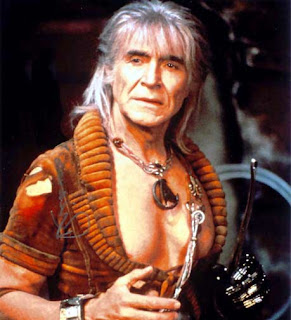“The sea was angry that day, my friends–
like an old man trying to send back soup in a deli…”
– George Costanza
Over the last few days I’ve been revising a story I wrote before my trip to Australia and it struck me just how much it was improved by drawing on experiences I had while away.
Part of the story involves a man in a kayak being swept out to sea, being rolled and pushed under by the waves, and in real danger of drowning.
Now, I thought this scene was pretty good before I left. It was tense, filled with vivid description of the sounds and sensations of nearly drowning. When I was a kid I nearly drowned a pool a couple of times, so I figured I knew what I was talking about (you know–as much as a person can, short of actually drowning).
That was before I went to Australia, however. Now I know what it’s like to almost drown in the ocean. A completely different experience.
See, I went (or rather tried to go) surfing at Manly Beach while in Oz and let’s just say it was a punishing experience, for both body and ego. Not only did I not manage to get up on the board even a little, I distinctly recall thinking on several occasions: “Oh, THIS is what it’s like to drown…”
Perhaps my favorite memory was when I fell off the board trying to get past the breakers and managed to get the tether tangled around both ankles. Not only was I very rapidly losing hold of the board, but I couldn’t kick to get myself back up.
“You okay?” asked the surf instructor as he also tried to help another student on to her board.
“My feet are tangled in the tether,” I said.
“Don’t worry about that. Just get up on your board.”
Huh? How the @#$% do I not worry about having my feet tied and being unable to swim or move in thirty feet of pounding surf!?!
Oh, did I mention my lesson had been scheduled at high tide?
Oh, and that this was my first time ever SEEING an ocean, let alone swimming and/or trying to surf in it?
My genius surf instructor’s response was to try pushing me up on the board saying: “You have to get on the board or else the waves will–oh, @#$%…”
I had just enough time to think in that instant, as I turned my head to see the on-rushing wall of water, “If he’s saying “Oh @#$%, I’m a dead man…” before I was hit.
Prior to this I’d heard about the “power” of the sea, about the “pounding” surf, but I had no frame of reference. At last I understood for myself some small aspect of nature’s raw, unstoppable power.
I was pushed under the surface, spun head over heels, still tangled in the tether, so that as the power of the wave ebbed and I might get back to the surface for air, I was instead looking down into deep indigo water, upside down and running out of breath. Then, an instant later, when another wave caught the surfboard (to which I was bound inextricably) I was pulled along by my ankles toward shore, yes, but down, too, and no nearer the surface and precious, precious air.
Unable to swim by kicking, I thrashed and thrashed my arms until I somehow righted myself and managed to break the surface. The waves came in series, with perhaps three seconds between each one, just enough time to gasp once and fill my lungs with an equal-parts mixture of air and saltwater.
Back down I went, the experience much the same as before. It’s funny the things part of your brain notices while the rest of it panics. I was struck by how distant the thunder of the waves seemed, though I was in the midst of them. I recall the whitewash of surf and bubbles around me as waves broke overhead and I thrashed for dear life. I was surprised just how salty seawater is. And I remember the indigo depths I stared into while hanging upside down, somewhere between life and death. No doubt Davy Jones was staring back at me.
When at last I returned safely to shore after repeating this harsh baptism several times, I lay on the sand for perhaps an hour coughing up brine and drying in the sun. I understood for myself the power of waves, had myself been pounded by the surf. I understood that the ocean was to be feared and respected. I re-read Dune while I was in Australia and one thought filled my mind: “I am a desert creature,” I repeated over and over. “I am a desert creature…”
I had almost forgotten that the story I was revising contained this drowning scene and was struck as I started to re-work it that–wait!–I had actually been in that situation. Write what you know, right? So I re-wrote the scene entirely with this experience in mind. It’s much stronger than the original version, containing an added level of vivid believability, I think.
My plan is to send the finished story out to markets soon. With luck you’ll get a chance to read it in the near future and see what you think…
– S.




